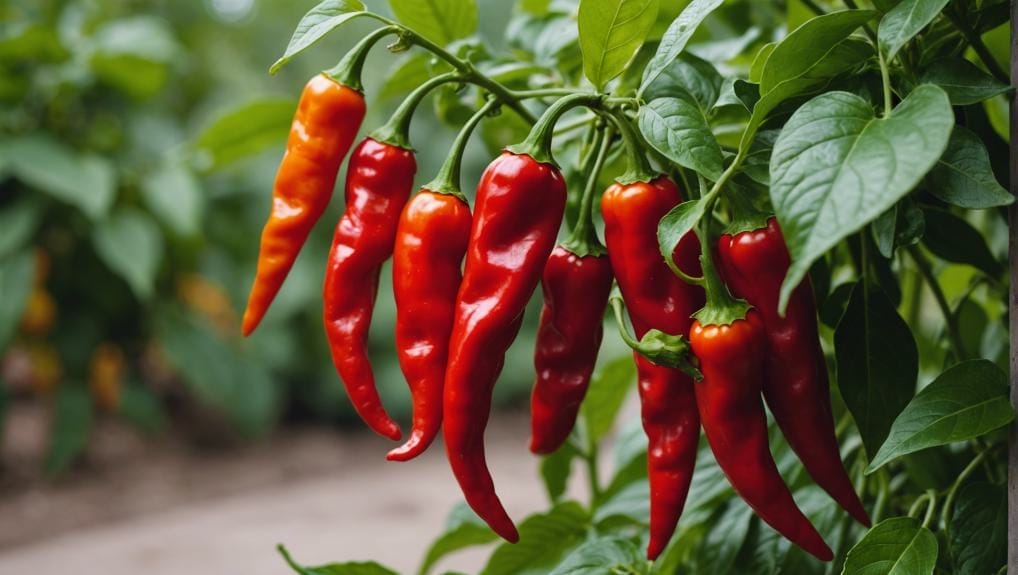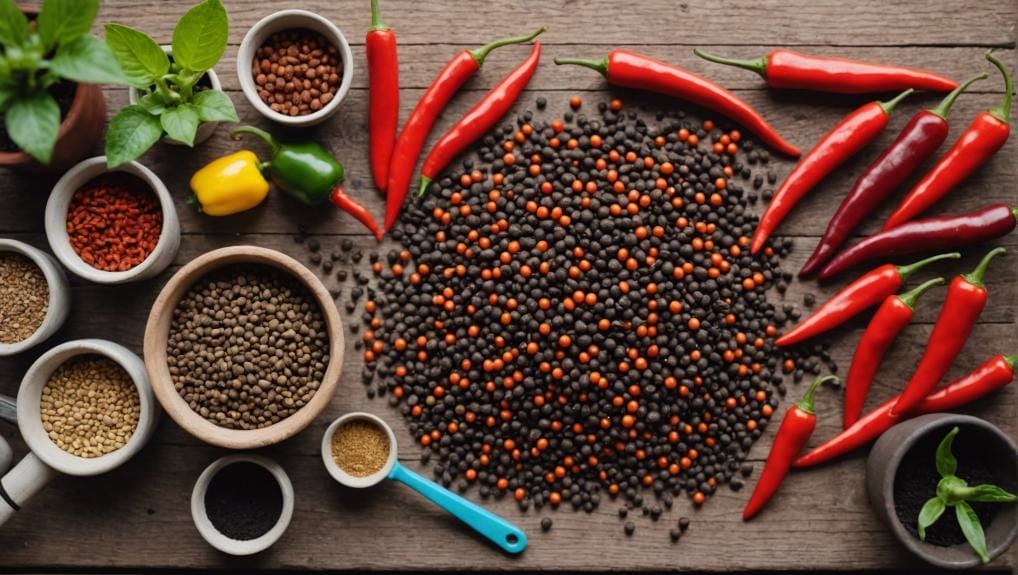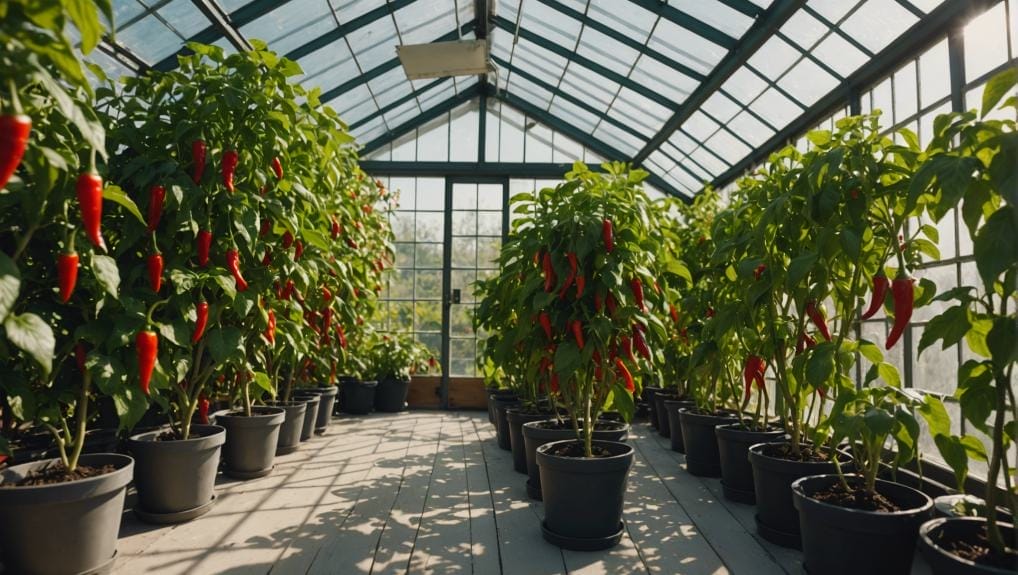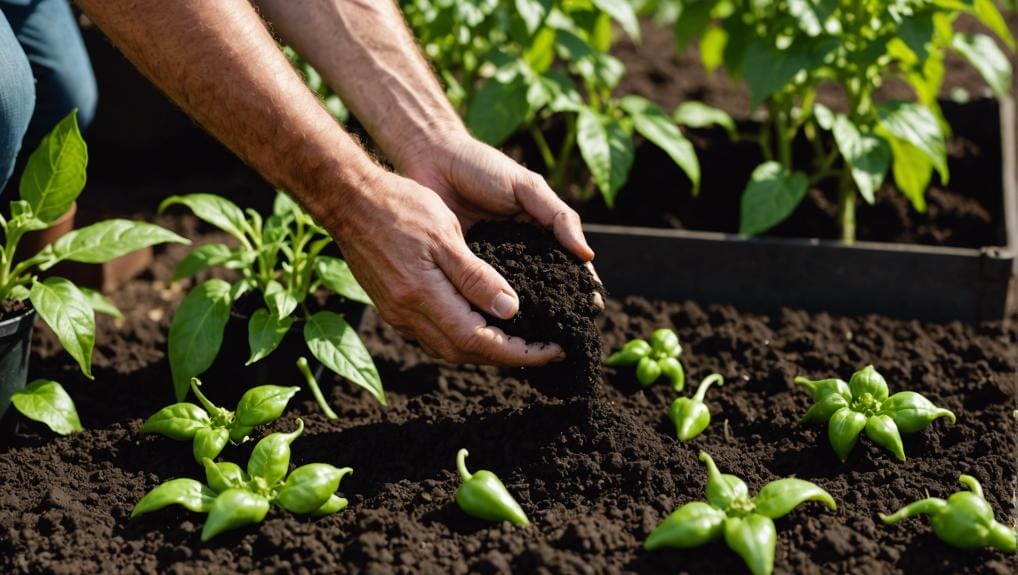If you’re looking to elevate the heat in your pepper plants, choosing the right fertilizers is crucial. Imagine a world where your peppers pack an extra punch, making your dishes stand out with bold flavors. By exploring the impact of specific nutrients on pepper spiciness, you’ll uncover a realm of possibilities for enhancing your harvest. Let’s delve into the realm of fertilizers that can unlock the full potential of your pepper plants.
Importance of Potassium for Pepper Heat
False
Role of Phosphorus in Pepper Spiciness
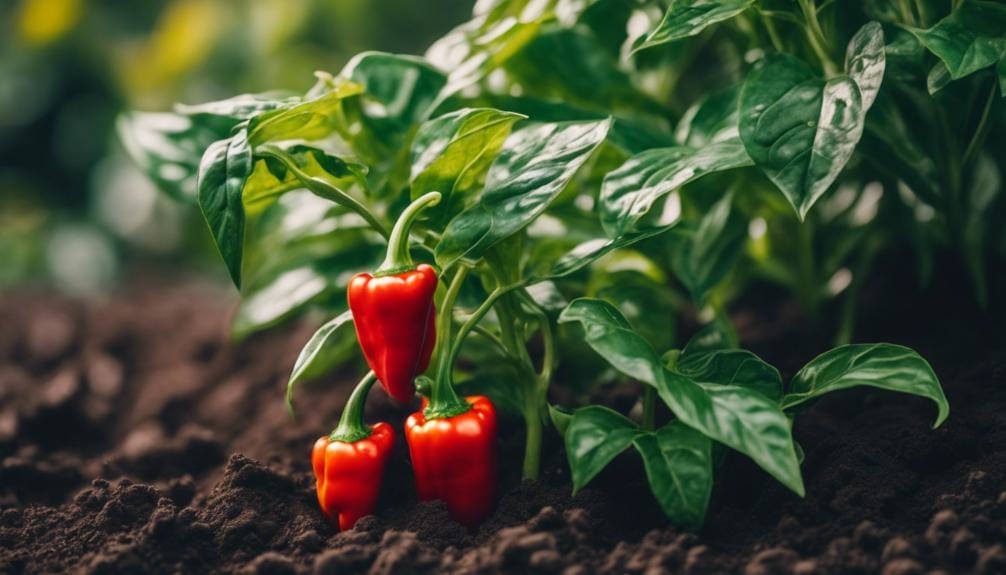
Phosphorus plays a crucial role in enhancing the spiciness of pepper plants by aiding in the production of capsaicin, the compound responsible for their heat. Adequate phosphorus levels in the soil can boost capsaicin production, leading to spicier peppers. Moreover, phosphorus promotes root development, which enhances nutrient uptake, contributing to the peppers’ heat intensity.
By maintaining balanced phosphorus levels, you can optimize the flavor profile of pepper fruits, making them hotter and more flavorful. Additionally, phosphorus supports overall plant health and vigor, ensuring that your pepper plants are robust and capable of producing spicy fruits.
To enhance the spiciness of your peppers, focus on optimizing the phosphorus levels in the soil to maximize capsaicin production and promote root development for improved nutrient uptake. This approach not only enhances the heat intensity of your peppers but also ensures their overall health and flavor.
Maintaining a Balanced N-P-K Ratio
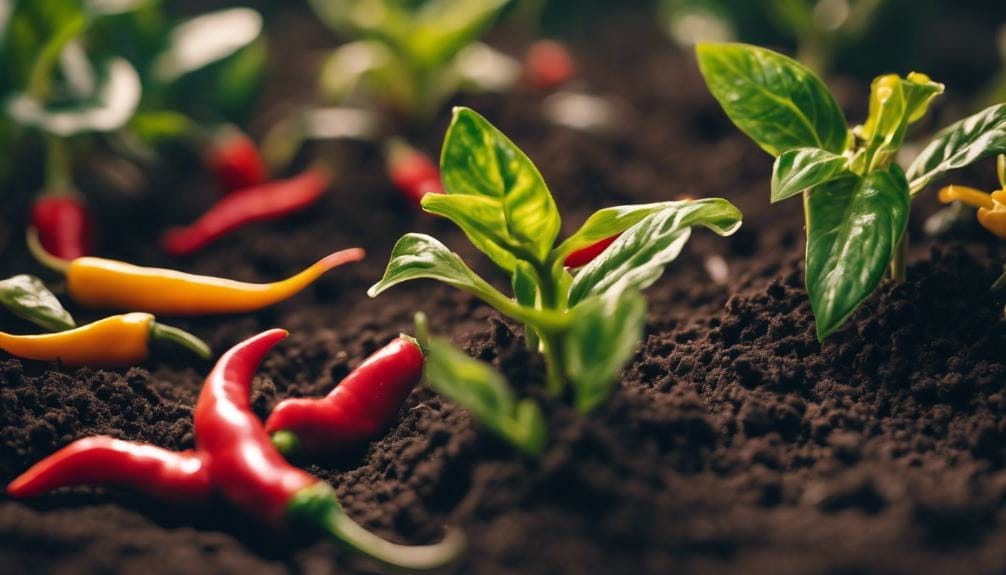
To maximize the heat levels in your pepper plants, achieving a balanced N-P-K ratio is crucial. Maintaining a proper balance of nutrients, including potassium levels, is essential for boosting heat in pepper plants.
A balanced ratio, with higher potassium levels like 5-10-10, can help enhance fruit development and increase the plant’s ability to withstand stress, leading to spicier peppers. Potassium plays a vital role in supporting fruit development, which directly impacts the intensity of heat in peppers.
On the other hand, excessive nitrogen can result in excessive leafy growth, compromising fruit production and heat intensity in peppers. Additionally, phosphorus support is crucial for root development and overall plant health, indirectly contributing to heat accumulation in peppers.
Therefore, by ensuring a proper balance of nutrients through fertilization, you can optimize the heat levels in your pepper plants and enjoy spicier fruits.
Specialized Pepper Plant Fertilizers

When aiming to enhance the spiciness of your pepper plants, consider using specialized fertilizers with higher potassium levels.
Specialized pepper plant fertilizers containing elevated potassium levels can help boost heat in your peppers. These fertilizers not only support fruit development but also increase capsaicin levels, the compound responsible for the heat in peppers.
Opt for fertilizers with a balanced N-P-K ratio, such as 5-10-10, to enhance the spiciness of your pepper plants effectively. Additionally, incorporating phosphorus into the soil can promote root growth, ultimately leading to healthier and hotter peppers.
For those looking for natural options, organic fertilizers like fish emulsion or kelp meal can provide essential nutrients for heat-loving pepper plants. By choosing the right specialized pepper plant fertilizers with higher potassium levels and a balanced nutrient composition, you can encourage the development of spicier peppers with increased capsaicin content.
Incorporating Potassium Sulfate for Heat
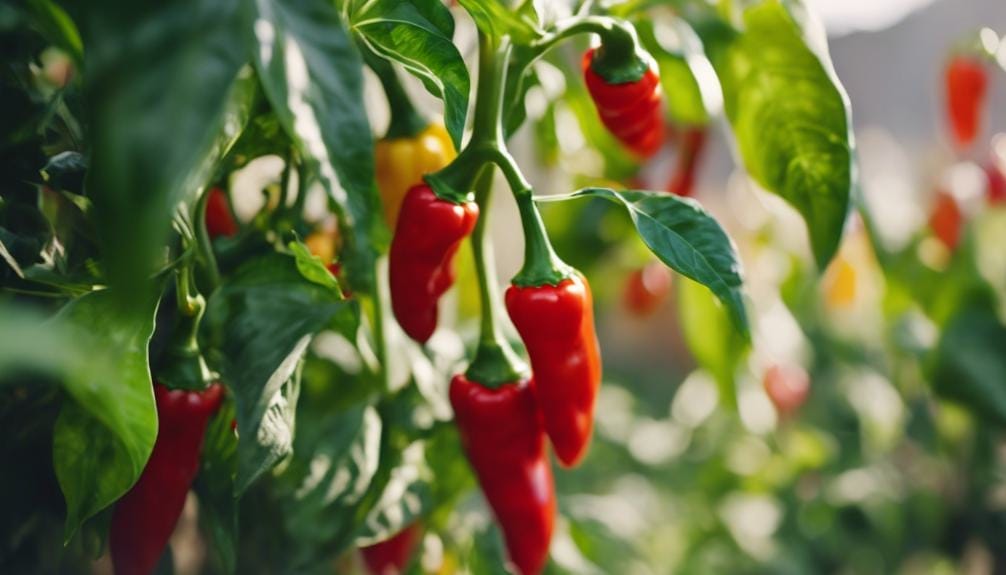
Enhance the heat intensity of your pepper plants by incorporating potassium sulfate, a fertilizer rich in potassium known to boost spice levels. Potassium is crucial for enhancing the flavor and heat intensity of peppers, making potassium sulfate a valuable addition to your fertilization routine. Applying potassium sulfate before the fruiting stage can significantly increase capsaicin production in peppers, leading to spicier fruits. Moreover, adequate potassium levels provided by potassium sulfate promote overall plant health and stress resilience, ensuring your pepper plants can withstand unfavorable conditions.
Regular applications of potassium sulfate support consistent heat levels in various pepper varieties, helping you achieve the desired level of spiciness in your peppers. By incorporating potassium sulfate into your fertilization regimen, you not only enhance the heat of your peppers but also contribute to their flavor enhancement and overall vitality. Make sure to follow recommended dosages and application frequencies to maximize the benefits of potassium sulfate for your pepper plants.
Enhancing Heat Tolerance in Peppers

Boost your pepper plants’ heat tolerance by incorporating phosphorus-rich fertilizers to promote root development and enhance nutrient uptake. Phosphorus plays a crucial role in strengthening the root system, allowing peppers to better absorb essential nutrients and water, ultimately increasing their resilience to heat stress.
Additionally, using potassium-containing fertilizers can help regulate water uptake in pepper plants, improving their overall health and ability to withstand high temperatures. If your pepper plants are struggling with heat tolerance due to magnesium-deficient soil, consider supplementing with Epsom salt to boost magnesium levels and enhance their resilience to heat.
Furthermore, a balanced fertilization approach that includes micronutrients like zinc and iron can optimize plant metabolism and fortify peppers against heat-related stressors. Timing is key – ensure proper fertilization during different growth stages to support your pepper plants in developing strong, heat-tolerant characteristics.
Conclusion
So, if you want to spice up your pepper plants and boost their heat levels, make sure to choose fertilizers with high potassium levels, such as potassium sulfate.
These specialized fertilizers not only enhance capsaicin production for spicier fruits but also promote overall plant health and stress resilience.
By maintaining a balanced N-P-K ratio and incorporating the right nutrients, you can effectively optimize the spiciness of your pepper plants and enjoy hotter peppers in your garden.


